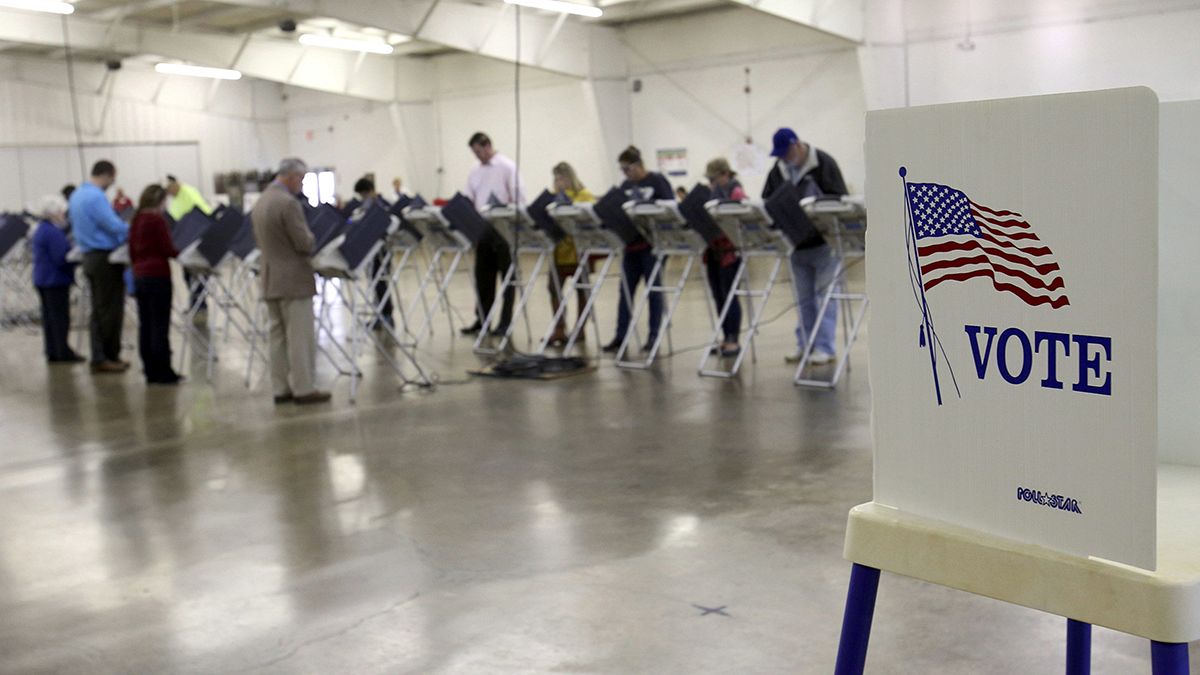It’s cost billions of dollars, dominated the media agenda for months and is arguably one of most important of its kind.
It’s cost billions of dollars, dominated the media agenda for months and is arguably one of most important of its kind.
But while the world’s eyes are fixed on whether it will be Hillary Clinton or Donald Trump next into the White House, it’s worth remembering the presidential poll is not the only election taking place in the United States on Tuesday.
There are also elections for the House of Representatives (all 435 seats) and the Senate (a third of its 100 seats), which together make up the US Congress. They are both currently controlled by The Republicans.
On top of that, there are a myriad of other state- and county-level polls, including for the election of governors and attorney generals, as well as various (sometimes bizarre) referenda.
Are Congress elections important?
They are obviously secondary to the presidential poll, but they can have a major impact on the ease with which either Clinton or Trump can make good on their campaign pledges, for instance whether the US keeps to its climate promises and if it is going to continue discussing a free trade deal with the EU.
The Republicans currently have an 80-seat majority in the House of Representatives, but just an eight-seat advantage in the Congress.
Political analysts say, therefore, it is far more likely Democrats will take control of the US’ upper house, than the House of Representatives.
If Clinton wins she would face an uphill battle to get legislation through a Republican-controlled Congress.
Yet even if Trump triumphs and his party retains leadership of the lower and upper houses, it wouldn’t necessarily be all plain sailing. Trump might be supported in repealing Barack Obama’s healthcare law, for example, but find it harder to get the funding for building a wall on the US-Mexico border.
State-level referenda – from the boring to the bizarre
In a bid to perhaps catch Americans while they are at the ballot box, a number of states are also holding referenda to decide on important issues.
Often it is about setting local taxes, but this year 80 million residents could see rules loosened on marijuana use, as a result of the polls.
There will also be a poll on whether California should be the first state to ban plastic bags. Others centre on controversial topics such as gun control, universal healthcare and the minimum wage.
The most bizarre is perhaps in California, which is voting on whether pornstars should be made to wear condoms.
‘View my ballot’
By international standards, US voter turnout tends to be low. In 2012, it stood at just 53.6 percent.
To make the electoral process simpler, voters can see their ballot paper ahead of the election. It’s simply a case of typing ‘view my ballot’ into Google, then your address into an election website. Voters are then able to see and reflect on who or, indeed, what is on the ballot paper in their constituency.
Other state-level elections
As if presidential and federal elections were not enough, some Americans will also be asked to vote in state-level elections.
State governors, the heads of state who are in charge of areas not controlled by the federal government, will be elected in a dozen of the US’ 50 states. Ten states will also elect an attorney general.
The vote always seems to be on a Tuesday…
That’s right, at least since 1845. Before then, things were much less organised.
For approximately a hundred years after the USA was founded, the presidential vote was held anytime states felt like it within 34 days before the first Wednesday in December. Hmmm…
What’s more, until 1805 the second-placed candidate automatically became vice president. In today’s race, that would likely make Clinton or Trump the other one’s right-hand man, so to speak.
So, why was Tuesday chosen as the preferred election day from 1845? Religion and commerce played a huge role.
Historically, Friday, Saturday and Sunday were deemed days of worship, while Wednesday was market day. Choosing Tuesday, then, allowed a day of travel on Monday to cast the ballot, and time to return and be ready for market day on Wednesday.
It was also decided to make the exact Tuesday of voting the one after the first Monday in November, hence November 8, 2016.
